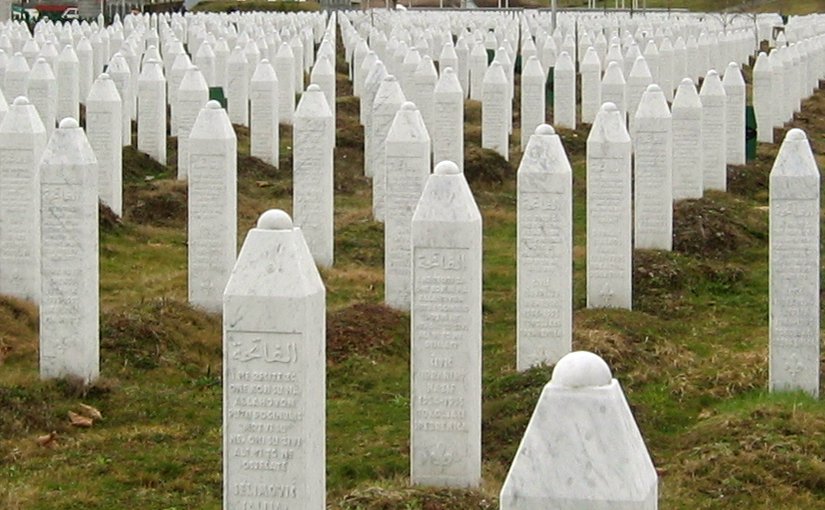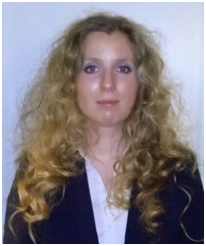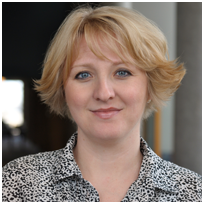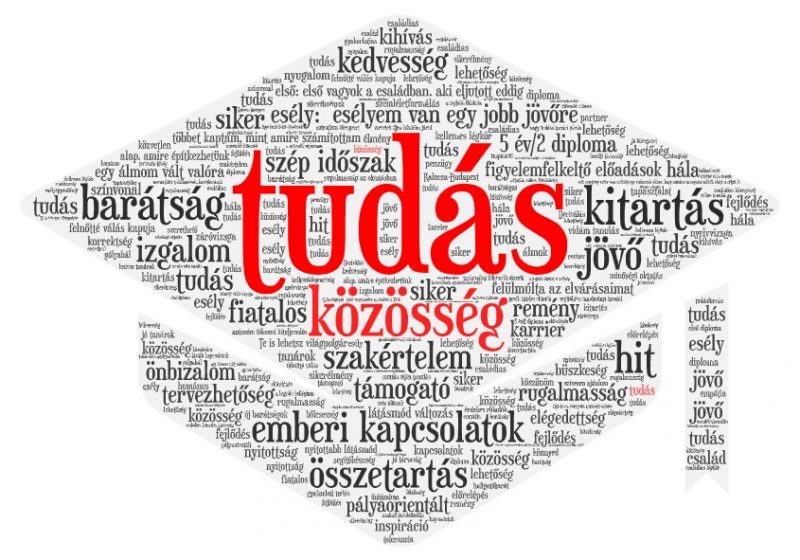
After Esad talked to two Auschwitz survivors and confronted the issue of the ‘hierarchy of suffering,’ he concluded that “I know it was not Auschwitz. But who said that Auschwitz is the benchmark for terror? Do we need another Auschwitz for the world to intervene?” (p.57).Although Esad was disillusioned with the United Nations and the International Criminal Tribunal for the former Yugoslavia (ICTY), and still is though not with the same intensity, he knows that “justice is never late,” and the court could make history and instruct post-Dayton generations as it did after the Holocaust at Nuremberg (p. 158).

Laura Kromják, Ph.D. Assistant Professor in International Relations at TomoriPál College

AjlinaKaramehić-Muratović, Ph.D. Associate Professor in Sociology and Anthropology at Saint Louis University
In 2012, Esad went on to publish Wounded I Am More Awake: Finding Meaning After Terror which is a collaborative writing project about healing with Jewish human rights journalist Julia Lieblich narrating Esad’s story from the pre-war years in Bosnia-Herzegovina until his post-war life in the Bosnian refugee communities of the U.S.It is written in direct reference to ‘tragic optimism’ conceptualized by Holocaust survivor Victor Frankl in Man’s Search for Meaning (1946).
This article explores aspects of healing as documented by Bosniak (Bosnian Muslim) genocide survivor turned psychiatrist Esad Boškailo and Jewish human rights journalist Julia Lieblich through the combined perspectives of mental health and discourse theory. Posttraumatic Growth (PTG), the concept that a major traumatic event or crisis can evoke a positive rather than a negative psychological change, is a mental health concept central to Wounded I Am More Awake. It is argued that Boškailo and Lieblich challenge what we fundamentally hold to be true of a traumatic experience, and through deeply personal and meaningful narratives, demonstrate how trauma can lead to psychological shifts that promote growth. It is also explored that growth is not necessarily a simple consequence of trauma but rather a destination which one may reach by living a “new” and post-trauma life.
The narrative contract of Wounded I Am More Awake speaks to first- second- and third-level witnessing and three interdependent trauma discourses, concretely writing trauma, writing about trauma and metadiscourse on writing (about) trauma. Throughout the memoir, these levels and modes of discourses converge in profound ways and are related to the project of sustaining personal and collective healing. It is revealed how the interconnectedness between these levels is integral for individual and collective healing as well as restorative justice for the survivors in Bosnia and elsewhere in refugee communities.
Through an interdisciplinary approach, authors Laura Kromják Ph.D. and Ajlina Karamehić-Muratović Ph.D. show us that Wounded I Am More Awake is a story of many possibilities: the intensely personal account of a survivor and of other trauma survivors of all kinds of atrocities, a testimony for a human rights journalist, and the story of Bosnian refugee communities en masse. It not only documents horrors of the 1992-1995 Bosnian war, but testifies to the will to grapple with the aftermath of terror and restore justice in the face of terror by acts of witnessing – that is witnessing the pain of oneself and being a witness to one another as well as being witnessed by other people.This healing narrative by a Jewish woman and a Bosnian Muslim man not only illuminates the timelessness of Frankl’s‘tragic optimism,’ the ultimate quest for positive legacy of trauma and witnessing the pain of oneself and others, but also links two different European Holocausts in a reassuring way.
References
Boškalio, E.,&Lieblich, J. (2012). Wounded I Am More Awake: Finding Meaning After Terror. Nashville: Vanderbilt UP. Frankl, V. (2006). Man’s SearchforMeaning. Boston: Beacon.
Publication Information:
Kromják, L., &Karamehic-Muratovic, A. (2016). Posttraumatic Growth and Levels of Witnessing in EsadBoškailo and Julia Lieblich’sWounded I Am More Awake: Finding Meaning After Terror. In Srebrenica 1995-2015: Evaluacijanaslijeđaidugoročnihposljedicagenocida [Srebrenica 1995-2015: Evaluation of Heritage and Long-term Consequences of Genocide]. Ed. FikretBečirović&MuamerDžananović. Sarajevo, Bosnia and Herzegovina: University of Sarajevo, Institute for Research of Crimes Against Humanity and International Law Sarajevo, pp. 520-536.




